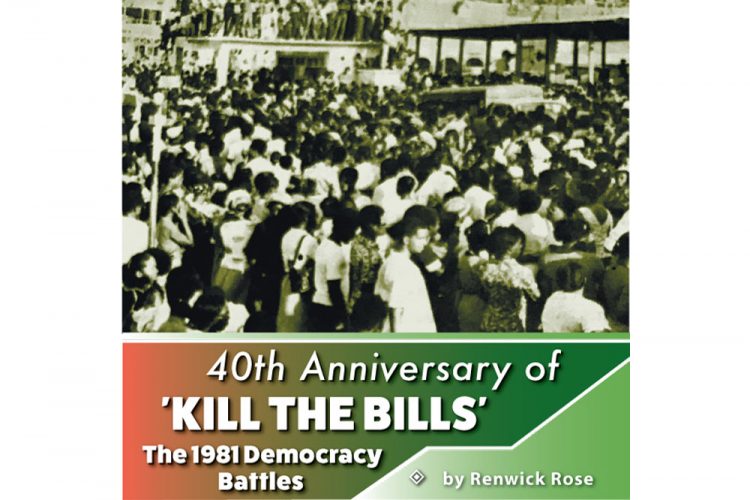40th Anniversary of 1981 Bills –Part 6:

THE GOVERNMENT BRACES FOR A FIGHT
WE HAVE Looked at some of the conditions which provided the background to the social and industrial crisis of 1981, a truly historic series of events in the history of not just the Vincentian working people but also in the struggle to preserve democracy in our country.
Increasingly as workers and trade unions flexed their muscles, the government of the day hardened its positions, seemingly bent on putting the workers and their unions “back in their place”. An examination of the nature of the administration formed after the victory of the Labour Party in the elections of December 1979 would provide some clarity as to why the government reacted like it did to the just demands of workers.
The scale of the 1979 election victory was somewhat surprising. The Labour Party wiggled its way out of a wave of unpopularity to win 11 of the 13 seats at stake. In the process both the Parliamentary opposition parties, James Mitchell’s New Democratic Party (NDP) and the Peoples Political Party (PPP) of the veteran Ebeneezer Joshua were soundly defeated. Crucially, both leaders failed in their bid to be re-elected to Parliament.
They both lost in the same constituency, South Central Windward to a political newcomer to electoral politics, Offord Morris, and Joshua had the ignominy of finishing last, losing his deposit as well.
Cato’s Labour party was also able to stave off the youthful challenge of the United Peoples Movement led by young lawyer Dr Ralph Gonsalves which had created many political headaches for the Cato administration.
The unexpected scale of the electoral victory seemed to have created illusions among the leadership of the Labour administration about its power and possibilities. It was as though the victory confirmed that they could do almost anything and get away scot-free. Additionally, an examination of the nature of the administration would reveal that 6 of the 11 MPS were lawyers,
representing business interests, local and foreign at the expense of the working people.
Some of these openly expressed not only anti-working class positions but anti-people ones at that. Two of the most prominent figures controlled the key offices between them of Legal Affairs, Labour and Communications and Works. Both had developed reputations for violent confrontations and one even boasted of being “the God of violence”. That was what the workers and their unions had to confront.
Thus when the just claims of the workers forced the unions to take industrial action, it was no surprise that threats to “deal with the unions” were openly being issued. The strikes at Bottlers Ltd (famed for its J-U-C beverages) and the Water Authority forced the government to have to intervene to settle the demands of the workers, while those, on a more limited scale at VINLEC, the Mt. Bentick Sugar factory and the Richmond Vale Estate were embarrassing.
Leading figures in the government threatened trade union leaders that government would bring legislation to deal with this outbreak of trade union militancy. It was no idle threat for the drafters were at work. By early May St.Vincent and the Grenadines recoiled in horror at some of the most repressive pieces of legislation ever taken to Parliament as we shall see in our next episode.
Renwick Rose









